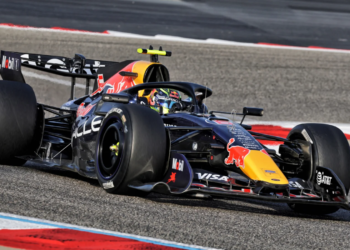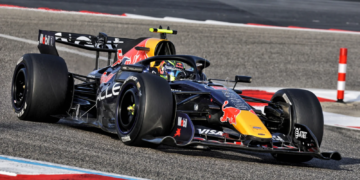Motor racing has thousands of fans around the world, but does anyone know how much effort lays behind a successful race?
Questions like “is it the driver or the car that wins the race?” are on any Formula 1 lover’s lips but do you know what? It’s the experience, dedication, and perseverance of all the team members; it’s not only the racer and machine that determine a title. There are strategies that Formula 1 racers and their team members build up together in order to touch the skies, careful planning, and hours of hard work that materialise in an F1 race.
If you’re genuinely passionate about this risky but exciting sport, you surely want to get more insight into the world of motorsport. Thus, we’ve come up with some helpful information on what a winning race takes.
Winning isn’t everything
The first thing that must be clarified is that winning is not always what a driver needs, particularly a novice racer. They should focus on gaining experience and learning more about the mysteries of this sport because, although at first simple, it implies several techniques and strategies. Before winning a prize, you should go through different scenarios, compete with various drivers, and achieve performance.
It’s also worth mentioning that a driver’s performance depends on the strengths of their team. If there are no involved team members to handle all the necessary aspects a race implies, including car maintenance, it’s all in vain. Research conducted by the University of Bristol also shows that 86 per cent of the relative changes in racers’ performance are attributed to the efficiency of their teams. Thus, a Formula 1 driver needs a powerful team to compete, not only to win.

Significance of the team
A famous Formula 1 driver, Nico Rosberg, once declared that there is 20 percent of the driver’s skills, while their team’s efforts account for 80 percent, in his theory. Could this be the recipe for success? It’s not yet proven, but it’s a worth discussing theory. One thing is clear: the team plays a massive role, being, in most cases, decisive for a Formula 1 title. The cameras focus on the racers, and it’s understandable: a racer controls how their machine connects to the track, a racer is behind the steering wheel, their feet move the pedals, etc. But there’s an entire team of working people that ensures a racer’s smooth driving experience.
Sports nowadays are highly influenced by data and telemetry, but the ones that measure all these are not the drivers (it would be impossible) but the team of mechanics, engineers, and designers. These people prepare a driver for the next race and are responsible for the car’s functioning. If something is wrong with the car, a racer won’t shout into the ratio to tell the problem: they have special headsets through which they announce to the team about it.
As you can see, it’s not just the driver who’s involved in races, but their team is equally important. Team members are also exposed to accidents – if someone gets hurt when preparing for a racing event, it’s considered a work accident. Thus, they have the right to claim compensation in the UK and have their losses covered.
Team members’ expertise and effectiveness are more significant than you can imagine: performing pit stops, giving information about the surrounding traffic and weather conditions, reducing tyre wear, and minimising temperature fluctuations are just some of the tasks a Formula 1 team is charged with.
Lightning-fast cars
As you may know, even one-tenth of a second can count when it comes to Formula 1 racing. In the world’s biggest motorsport, drivers compete in skills and cars in speed. Therefore, it might not be enough for a racer to drive like a pro if their car doesn’t speak at a lightning-fast speed. It’s nothing new under the sun that a skilful driver can lose a race because their machine can’t keep up with the opponent’s one. For example, one of the best F2 drivers globally, Robert Kubica, was once defeated by Hamilton’s lickety-split Mercedes. And there are many cases when the speed of the car is more decisive than the racer’s driving skills. Hence, F1 teams concentrate on both driver and car performance and make efforts to provide racers with as quick as a flash machine.

The road to success is never straight
You probably heard about this many times before, but it’s true even in Formula 1. Becoming an F1 driver takes tough training, hours of hard work, and understanding the fundamentals. Besides, luck has an important word to say when it comes to this sport. Mike Shinoda, for example, thinks that the ingredients for success in Formula are 20 per cent talent, 15 percent willingness, 10 percent luck, and 5 percent pleasure, but – are you ready? – 50 percent pain. This is not data science, but it’s the opinion of a vocalist in the US rap group Fort Minor, which is quite significant. And if we’re to rely on his words, we come to realise that it’s actually accurate. What matters in this sport is to know the difference between winning and losing. Losing is, more often than not, underrated, but it’s part of the competition and a great way to gain experience. There’s a massive difference between playing to win and playing not to lose, and if you want to become a successful F1 racer, you need to learn what this difference is about.
Final thoughts
Winning in F1 depends not only on the driver’s performance but also on the efficiency and expertise of their team. The driver is not alone in this long journey of winning an F1 title – an entire team supports them to achieve their goal. Besides, the racer’s goals are also the team’s goals.
We hope our deep insights into the fascinating world of motorsport help you have a clearer idea of what Formula 1 is all about and see beyond appearances.









Discussion about this post